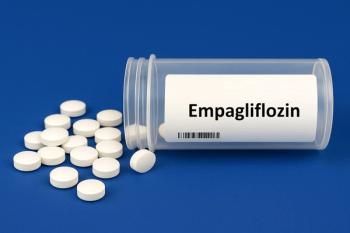
Combination Treatment Shows Promise for Ulcerative Colitis
Tremfaya is a combination of guselkumab and golimumab.
A combination of 2 drugs—one for ulcerative colitis (UC) and one for plaque psoriasis—is showing promise as a new treatment for moderate to severely active UC.
According to Janssen,1 results of a in a phase 2a clinical trial have shown that guselkumab (Tremfya), a combination of a monoclonal antibody against IL-23 used to treat plaque psoriasis and golimumab (Simponi), a tumor necrosis factor-alpha (TNFα) antagonist, induced higher rates of clinical response, clinical remission, endoscopic improvement, and a composite histologic-endoscopic endpoint at 12 weeks than either treatment alone in patients with UC.
Although guselkumab, along with combination guselkumab and golimumab, are not currently approved for the treatment of adults with UC in the United States, the combined treatment shows incredible promise, Jan Wehkamp, MD, PhD, disease area leader in Gastroenterology for Janssen Research & Development told Drug Topics®.
Janssen’s VEGA study “represents a first-of-its-kind investigational assessment of biologic combination therapy in ulcerative colitis (UC): an IL-23p19 subunit antagonist with a TNFα antagonist,” Wehkamp said.
“It is significant because, while there are patients living with UC who have responded to their current therapies, there are still many other patients, such as refractory patients, who have failed or lost response to current advanced therapies. Combination therapy represents an exciting and important opportunity to leverage our pathway strategy and scientific expertise to bring forth new treatment options that can address the unmet needs of patients living with UC,” Wehkamp added.
Golimumab has been FDA approved for the treatment of moderately to severely active UC in adult patients since 2013. Guselkumab, although approved in other indications, is currently under investigation and is not approved for the treatment of adults with UC in the United States, said Wehkamp.
“We are in an important race to innovate for patients with disease where need remains. With life-long progressive conditions like UC and Crohn’s disease, it’s critical that we investigate potential new treatment options and mechanisms of action with the understanding that remission, and helping more patients feel well is the ultimate goal,” Wehkamp said.
In the VEGA study, a greater proportion of patients who received combination therapy of guselkumab and golimumab achieved the primary endpoint of clinical response at week 12 (83%) versus 74.6% who received guselkumab alone, or 61% who received golimumab alone.
Notably, 36.6% of patients in the combination group achieved clinical remission based on the full Mayo score at week 12 versus 21.1% and 22.2% in the guselkumab and golimumab groups, respectively.
In addition, 46.5% of patients in the combination group achieved clinical remission based on the modified Mayo score at week 12 versus 23.9% and 25% in the guselkumab and golimumab groups, respectively.
A higher proportion of patients who received combination therapy achieved endoscopic improvement (49.3%) at week 12 compared with those who received either monotherapy (guselkumab: 29.6% and golimumab 25%), Janssen said.
The next step for Janssen in studying long-term combination therapy in inflammatory bowel disease is the phase 2b DUET-UC and DUET-CD studies, 1-year dose ranging studies comparing combination therapy with monotherapy.
Reference
1. Results of novel clinical study show adults with moderately to severely active ulcerative colitis achieved higher rates of clinical response, clinical remission, and endoscopic improvement at 12 weeks with guselkumab and golimumab combination therapy versus either monotherapy alone. News release. Janssen. February 19, 2022. Accessed March 17, 2022.
Newsletter
Pharmacy practice is always changing. Stay ahead of the curve with the Drug Topics newsletter and get the latest drug information, industry trends, and patient care tips.























